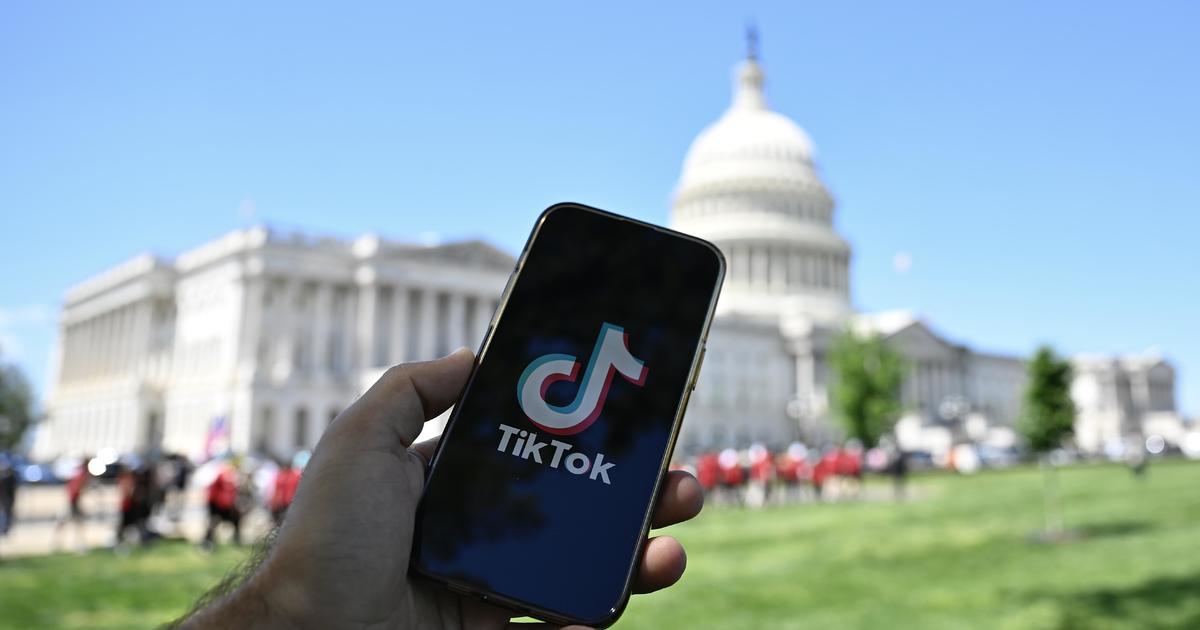The federal appeals court has recently upheld a law that will ban TikTok in the United States if its Chinese parent company does not sell its stake in the app. This decision has dealt another blow to the popular video-sharing service in its ongoing battle with the federal government. A panel of three judges from the U.S. Court of Appeals for the District of Columbia Circuit unanimously sided with the Justice Department in declining to review the petition for relief from TikTok and ByteDance, its Chinese parent company, stating that the law is constitutional.
The law, which was approved by Congress in April as part of a foreign assistance package, gives TikTok nine months to sever ties with ByteDance or face losing access to app stores and web-hosting services in the U.S. President Biden quickly signed the bill into law, with it set to take effect on January 19. There is a possibility of a one-time 90-day delay granted by the president if a sale is in progress by then. Former President Donald Trump had previously attempted to ban TikTok during his first term in office but reversed his position during the presidential campaign, vowing to “save” the app. He is set to leave office on January 20.
Lawmakers and national security officials have long expressed concerns about TikTok’s ties to China. There have been warnings from officials from both parties that the Chinese government could potentially use TikTok to spy on and collect data from its approximately 170 million American users or covertly influence the U.S. public by manipulating certain content. These concerns are rooted in the fact that Chinese national security laws mandate organizations to cooperate with intelligence gathering efforts.
The decision by the appeals court sets the stage for a potential legal battle at the Supreme Court regarding the law’s ultimate fate. The parties involved have requested a decision by Friday to allow sufficient time for the high court to review the case before the law comes into effect. The Supreme Court could choose to hear the case and halt the law while considering the legal arguments, or they may let the appeals court’s ruling stand as the final decision.
TikTok spokesperson Michael Hughes has expressed confidence that the law will be overturned by the Supreme Court, citing the belief that the law is based on “inaccurate, flawed, and hypothetical information.” Hughes stated, “The Supreme Court has an established historical record of protecting Americans’ right to free speech, and we expect they will do just that on this important constitutional issue.”
In the court’s decision, Senior Judge Douglas Ginsburg emphasized the government’s actions to protect freedom of speech in the U.S. from potential threats posed by a foreign adversary. The appeals court acknowledged the significant implications the decision will have on TikTok and its users, noting that the burden is a result of China’s hybrid commercial threat to U.S. national security.
The court found that the government’s national security justifications for banning TikTok, aimed at countering China’s efforts to collect American data and manipulate content on the platform, align with the First Amendment. Representative John Moolenaar of Michigan praised the decision, calling it “a loss for the Chinese Community Party” while expressing optimism about TikTok’s future in the U.S.
The legal arguments presented in the case highlighted the concerns raised by TikTok and ByteDance regarding the legislation’s constitutionality. Both companies argued that the law was an overreach of power based on speculative concerns about data security and content manipulation that would suppress the speech of millions of Americans. The Chinese government’s resistance to the sale of TikTok’s algorithm, which tailors content recommendations to users, further complicated the feasibility of a forced sale.
During oral arguments, the appeals panel appeared skeptical of TikTok’s argument that free expression outweighs national security concerns. However, they also questioned the government’s stance on the issue. TikTok’s lawyer, Andrew Pincus, argued that the law would have a staggering effect on speech prohibition and questioned the government’s failure to satisfy strict scrutiny in justifying the legislation.
The judges on the panel raised various points of contention during the arguments, with discussions ranging from the potential impact on foreign ownership of media companies in the U.S. to the lack of evidence supporting the claims of national security risks posed by TikTok. The Justice Department emphasized the value of data that could be collected through the app by a foreign adversary and the risks of content manipulation.
Despite these concerns, Judge Sri Srinivasan highlighted the importance of Americans’ choice to use the app and the need for First Amendment scrutiny. The discussions in court underscored the complex issues at play, including the balance between national security interests and freedom of speech.
As the legal battle over TikTok’s ban continues, the fate of the popular app remains uncertain. The Supreme Court’s potential involvement in the case could have far-reaching implications for the future of technology regulation and national security in the digital age. The ongoing debate surrounding TikTok serves as a reminder of the complex interplay between technology, privacy, and national security in today’s interconnected world.









